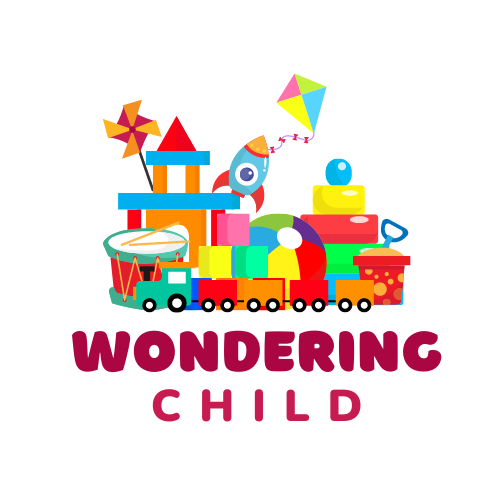Tapping into Genius
By 12 and 13, children are on the fast track to growing up. They are under pressure at home to stop acting like a child, to be responsible. Seventh and eighth grades are preparation for high school which is preparation for college or learning trades. Working with middle schoolers, I was watching childhood disappear before my very eyes.
I decided to teach a class that came with this message: Go ahead and move forward into adulthood but don’t leave all the good parts of you behind. Remember your creative part, the part of you that can think your way out of a box without a rulebook. You will always need that part of you. Don’t lose it.”
Tapping into Genius
By Christina Rose
When I had the idea for an online toyshop, I was pushed to ponder my mission. Having known children from literally all walks of life, from upper-middle class wealth and privilege to the most impoverished children in the country, I had observed success, hopes and dreams and the lack thereof in every cultural situation.
I watched to see why some children plow fearlessly into life and others shy away from challenges and even hope. What was it that moved some children towards a full-blown wondrous childhood and others towards a life devoid of dreams?
Often, it was the parent’s personal view of themselves, their own fears and anxieties that effected those outcomes. Was the parent successful in their chosen goals? Was their goal to bring their family to the United States to make a better life for them all? In that case, goal achieved, children should have been free to make their own goals, but that is not always the case.
Was the parent depressed or unable to succeed within their own goals? Did the child respect their parent as someone they would want to become? Did the parents encourage their child even though they themselves had sometimes failed?
Encouragement, the belief their child could accomplish anything they wanted, seemed to me to be the biggest signifier of a child’s confidence and ultimate ability. Mocking, name calling, laughing at a child’s attempts seemed to me to be the most destructive parental behaviors that some children have to overcome. Like bullies on the playgrounds, parents who bully can potentially wreck a child’s soul permanently.
As a nanny, I sometimes felt I had to take corrective measures with children I met only once or twice. Reassurance that their parents were wrong and they most certainly could succeed despite their parents fears and concerns was something I did when I felt the need to do so. And the relief in their children’s eyes is something I will never forget.
Please understand that you are your child’s map to adulthood. Your support is their life raft in every situation. One recent study showed that highlighting your faith in your child’s abilities, and your verbal recognition of how hard they tried, is more important than highlighting their successes.
Recently, I found another important study focused on the genius of children. The study “found that of 1,600 four and five-year-olds, 98 percent scored as creative geniuses. Five years later, only 30 percent of the same children scored at that level, and again, after five years more, only 12 percent. When the same test was administered to adults, it was found that only two percent scored at the genius level.”
That article was entitled, “You’re 96 Percent Less Creative Than You Were as a Child. Here’s How to Reverse That.”
The message of the article is that without any manual whatsoever, children figure out their world within five years. They have become fluent in the household language, they are capable of creating their own entertainment, and they can make something out of not much. They are creative geniuses. In fact,” Walter Isaacson, biographer of many well-known geniuses, explains that . . . the most common trait that actually defines a genius may be the extraordinary ability to apply creativity and imaginative thinking to almost any situation.” That certainly fulfills my definition of children.
Another definition of genius is the ability to problem solve so by all means, encourage their experimentation rather than rushing in to do so much for them. It is hard to watch our children struggle to achieve their goals but it is how they learn best.
Creative genius escapes us as we grow. The American pursuit for well-paid work forces many to throw their creative play to the wind — but there is no reason for that to happen.
Adults in the arts often enjoy their work as play but most people push play aside for more grown up endeavors. The toys of Wondering Child have been selected to slow down that drive towards Too Mature to Play. Our toys inspire building, creating and pretending. Some of the toys are admittedly just fun but what is better than simple joy?
Many of our toys span several age groups so kids can play with them for years to come. Wondering Child will engage your child’s creative genius to keep creation and problem solving relevant in their lives. Most of our toys will engage you as well, if you let them.
My oldest daughter played with Legos until she was almost 12. She builds parade floats for a living which often looks like Legos to me. During the pandemic parades disappeared but she was hired by several major corporations to teach parents how to build Lego kits for fun and family entertainment. My other daughter, at three years old, dressed up like a queen at all times. She has grown up to be a successful actress.
Never assume your child’s play is just that. Encourage their play and keep an eye open for the development of their passions. Let their creativity flow like a river and see were it takes them.





I’ve been browsing online more than 4 hours today, yet I never found any interesting article like yours.
It’s pretty worth enough for me. In my opinion, if all web owners and bloggers made good content as you did, the net will be a lot more useful than ever before.
Thanks so much for your kind message. I’m so glad you found it useful. There is much more to come!
Great article! I wish more parents understood the importance of play at all ages! I love your work l – your messages are clear, educational, and easy to read. Please keep them coming!
Great article! I really appreciate the clear and detailed insights you’ve provided on this topic. It’s always refreshing to read content that breaks things down so well, making it easy for readers to grasp even complex ideas. I also found the practical tips you’ve shared to be very helpful. Looking forward to more informative posts like this! Keep up the good work!